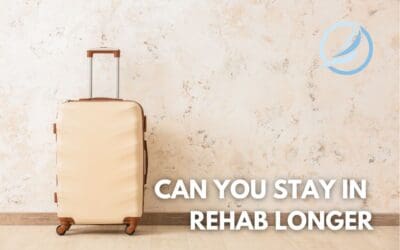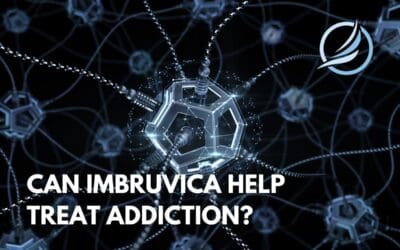Drug and alcohol addiction is a serious health condition that can destroy lives. In some cases, it can even lead to death. The good news is that recovery from addiction is possible for those who seek help. Professional treatment programs are designed to provide the tools needed for individuals to recover from their addictions. In this post, we will discuss the 13 principles of effective addiction treatment programs that have been proven effective in helping people overcome their addictions and reclaim their lives.
According to The Surgeon General’s Report on Alcohol, Drugs, and Health by SAMHSA, addiction treatment programs for adults should be based on the following 13 principles.
1. Addiction is a complex but treatable disease
Addiction is a chronic brain disorder. Most people who are addicted don’t choose this lifestyle but have been drawn into it due to genetics or traumatic experiences in their childhoods.
2. There’s no universal treatment that is appropriate for everyone
Many factors play into an individual’s response to a particular medication or behavioral therapy approach, including their upbringing, genetics, and current life situation. As a result, addiction treatment must be tailored to each person’s unique needs and circumstances. Recovery works best when we can match the person who needs help with the kind of help that will work for them.
3. Treatment must be readily available
Accessibility is important because addiction is a chronic disease that affects every aspect of your life. If you’re an addict, treatment should readily be available wherever you are. The first step in treating addiction is admitting your problem and asking for help. This can be difficult if there aren’t any resources available in the community where the person lives or works.
4. Effective treatment attends to the multiple needs of the individual
Effective treatment programs help people overcome drug use disorders by addressing the full scope of the issues they face. While there are many physical, mental, and emotional needs associated with addiction that must be addressed, it would be impossible to provide a complete list here. However, some common areas where treatment may focus include:
- Physical health issues like sleep disorders and nutrition problems;
- Mental health concerns such as depression or anxiety;
- Social isolation and lack of motivation to engage in daily activities;
- Spiritual or religious beliefs that could help or hinder recovery.
5. Remaining in treatment for an adequate period of time is critical
While some people do not need to remain in an addiction treatment program for very long, others may require multiple attempts before they can break their drug abuse habits. Most people experience significant improvement after three months of treatment. Effective treatment programs should include strategies to engage patients and encourage long-term compliance.
6. Counseling and behavioral therapies are the most commonly used forms of drug abuse treatment
Counseling (individual and group) and other behavioral therapies are the most frequently used drug abuse treatment. Counseling provides an opportunity to understand your drug use and why it became a problem. While counseling may not be effective by itself, it is an essential component of a comprehensive treatment plan. Counselors often work with clients to develop strategies for avoiding relapse.
7. Medications are an essential treatment element for many patients
Medications can be vital for many patients, especially when combined with counseling and other behavioral therapies. Medications can help to manage symptoms such as cravings, depression, and anxiety; they can also be used to help prevent withdrawal symptoms and sleep issues. Some patients may require medications to complete their treatment program successfully.
8. Treatment plans must evolve with the patient
The individual’s treatment and services plan must be assessed continually and modified as necessary to ensure that it meets their changing needs. This is a vital component of effective addiction treatment because the needs of patients are constantly in flux. An effective rehab program will work with patients individually to receive these important services without any gaps in their care over time.
9. Many drug-addicted individuals also have other mental disorders
At least 50% of those with a substance use disorder struggle with a mental health disorder and vice versa. The brain reward system is altered by drugs, resulting in altered behavior patterns that are difficult to break. Treatment programs help individuals regain control of their lives by learning new habits to replace their unhealthy behaviors while they work through underlying causes of addiction.
10. Medically assisted detoxification is only the first stage of addiction treatment
Detoxification is a medical procedure to help the body recover from the effects of drug abuse. It involves getting off drugs and alcohol in a safe, medically supervised setting. While detoxification is sometimes considered a cure for addiction, it’s essential to understand that it does not address the underlying causes of addiction, nor does it provide treatment for co-occurring disorders. Instead, it serves as the first stage of an ongoing treatment program to help you learn the skills necessary to live without substance abuse.
11. Treatment does not need to be voluntary to be effective
In an ideal world, treatment would always be voluntary. However, the reality is that not all addicts want to accept help. Sometimes you need to take action and force them into recovery whether or not they want it. Often, being sanctioned or enticed by the family, professional, or justice system environments can increase addiction treatment success rates.
12. Drug use during treatment must be monitored continuously
It is important to monitor drug use during treatment as relapses occur. Drug use during treatment may signify a relapse or an attempt to find new ways to procure drugs while in rehab. Drug tests should be administered regularly, and the results should be reviewed before meetings with counselors or therapists.
13. Treatment programs should test patients for the presence of HIV/AIDS, Hepatitis B and C, tuberculosis, and other infectious diseases, provide risk-reduction counseling, and link patients to treatment if necessary
Drug addiction may accompany risky behavior, such as unsafe sexual relations. You should be tested for HIV/AIDS, hepatitis B and C, tuberculosis, and other infectious diseases and taught about steps to reduce your risk of these illnesses. Testing should be done before treatment begins and at least once a year after treatment ends. Behavioral therapy can help patients avoid high-risk behavior and help those already infected manage their illnesses.
Find the help you need
It’s important to remember that an addiction treatment program is not a luxury. It’s a necessity, and it should be treated as such. Don’t wait until you’re ready – just go.
The most important thing to remember is that addiction treatment is not a one-size-fits-all solution. Treatment should be tailored to the individual, considering their needs, lifestyle, and other factors. While some may only need outpatient treatment, an inpatient treatment facility provides more comprehensive care. It’s also important that treatment addresses substance abuse and related issues such as mental health concerns or childhood abuse, or neglect trauma.
In addition, effective treatment plans need continuous monitoring with regular assessments and adjustments made as needed based on these evaluations so patients can benefit from the best possible care available.


































